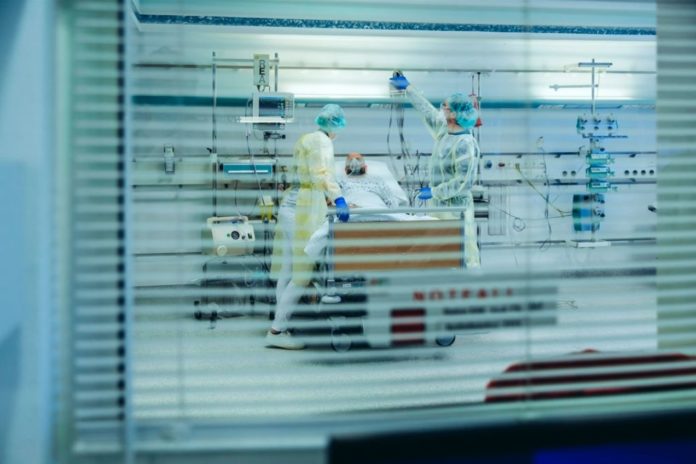A recent study, published in Nature Immunology by the researchers of UConn Health, has found a new way to predict severe sepsis – a disease that kills over 270,000 people annually in the US alone.
Bacterial infections are the most common cause of sepsis. When the immune system loses control, a cytokine storm occurs, in which inflammation-causing proteins flood the bloodstream. Organs can fail, and death is often the result.
- Does This Mean We Stopped Being Animal and Started Being Human Due to ‘Copy Paste’ Errors?
- The One Lifestyle Choice That Could Reduce Your Heart Disease Risk By More Than 22%
- Aging: This Is What Happens Inside Your Body Right After Exercise
- Immune-Boosting Drink that Mimics Fasting to Reduce Fat – Scientists ‘Were Surprised’ By New Findings
- Gun Violence in America: What They Don’t Talk About at the Debate
Cytokine storms can also be caused by other diseases; medical historians believe cytokine storms were responsible for the 1918-1919 flu epidemic’s lethality, as well as the Black Death. Patients with severe COVID-19 have cytokine storms, which are thought to be involved in COVID-19 death.
A main trigger for the cytokine storms during sepsis is the A primary cause of cytokine storms in sepsis is the body’s overreaction to an infection within the cells. When a cell detects bacteria or bacteria fragments within itself, it immediately activates enzymes, which activate a protein that pokes holes in the cell membrane from within, eventually causing the cell to burst open and release cytokines into the bloodstream.
Cytokines function as alarm signals, mobilising the immune system to combat bacteria. Additionally, cytokines increase the likelihood of other cells bursting open and sounding the alarm. Normally, the system settles down after a while, but in sepsis, it spirals out of control, causing an increasing number of cells to burst and die and release additional cytokines into the bloodstream.
When cells rupture, they release not only cytokines, but also other danger molecules known as alarmins, which alert the body to an infection or injury and can amplify the ongoing cytokine storm.
Vijay Rathinam, an immunologist at UConn Health, was interested in learning which alarmins were released when a cell detected a specific type of bacterial molecule called lipopolysaccharide within itself. Dr. Ashley Russo, then a graduate student in the Rathinam lab, catalogued the proteins released by these cells in response to lipopolysaccharide detection in collaboration with immunologists Tony Vella and Antoine Menoret at UConn Health.
And they discovered something intriguing. Galectin-1, a sugar-binding and sugar-coated protein, appeared to be emitted by the cells. Interestingly, they discovered that galectin-1 is small enough to escape the holes poked in the cells’ membranes prior to the cells bursting open.
After noticing this, they began investigating galectin-1’s role in sepsis. They discovered that galectin-1 appeared to act as a brake on inflammation, causing the cytokine storm to intensify. Additionally, they discovered that mice lacking galectin-1 experienced less inflammation, sustained less organ damage, and survived longer than normal mice during sepsis caused by bacterial infection and lipopolysaccharide.
The team collaborated with Drs. Deshmukh, Bauer, and Sponholz of Jena University Hospital to determine whether galectin-1 is released during sepsis in human patients. They discovered that sepsis patients had higher levels of galectin-1 than other non-sepsis patients in critical care and healthy people.
The team is investigating whether galectin-1 could be a useful drug target for dampening cytokine storms associated with sepsis, as well as a useful marker for identifying critically ill patients at risk.
Image Credit: Getty
